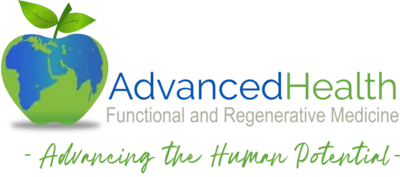As this devastating disease continues to plague our society, it is important to understand the crucial role nutrition plays. I continue to research the link between nutrition and cancer on a daily basis and am eager to share my findings. Let's begin with the actual cancer patient who has already been diagnosed as such. Nutritional recommendations for cancer patients are obviously very different, and largely depend on the stage of care and the specific symptoms being dealt with.
The most fundamental component for proper tissue regeneration is PROTEIN. Protein is an essential component for strength, endurance, tissue repair, hormone production, and the list goes on. If the patient is experiencing severe nausea with decreased appetite, however, protein is usually the last thing on their mind and may even cause problems with digestion in some cases. The first line of defense in the severely debilitated case is mega doses of micro and macro nutrients by way of juicing various vegetables. The juicing allows the nutrients to become more readily available for the body's use (consult the Gerson Therapy for more information on juicing specifically). Getting the protein back into the diet as soon as possible though is the key to brining the healing capability back on track. Ingesting too little protein is a common nutritional problem facing many cancer patients.
Protein coupled with the right complex carbohydrates (certain vegetables and fruits), help with healing, fighting infections, and provide much needed energy. A great way to get additional protein into the diet is by using UNDENATURED (never heated above 70 degrees during processing) whey protein. Do this by making a protein smoothie with a whey protein that contains no artificial sweeteners and absolutely no sugar. Please remember that throwing sugar on cancer is like fuel on the fire as it instantly promotes inflammation. Adding whey protein will not only get a healthy dose of protein, but glutathione is plentiful in whey and has been found to be essential for detoxifying the body, serving as a powerful antioxidant, and drastically reducing inflammation-which is essential in fighting cancer.
The second most important nutrient for the cancer patient in my opinion is high quality fish oil. Research indicates that high intake of deep sea fish that contains the right proportions of omega 3 fatty acids is inversely associated with pre and post menopausal breast cancer risk and colon cancer specifically; but because it also slows down the inflammatory 'cascade', it is indirectly related to every type of cancer. The mechanism for the benefits of high doses of fish oil inhibiting cancer from thriving is by slowing down an enzyme called Cyclooxygenase. Cyclooxygenase works to convert arachidonic acid into prostaglandin E2 (PGE2). There are a lot of big words here, but stick with me, I'll explain. PGE2 is an inflammatory marker which promotes cellular damage-the bad guy. One area where traditional medicine and alternative medicine agree is that when PGE2 is high, the body has an excuse to build cancer cells. Fish oils help to ensure that the PGE2 is not made in high amounts. Many of us know the lack of vitamin D is also a huge factor in good health, cancer prevention, and cancer therapy as well. In my opinion, the best way to get both of these great nutrients is through a high quality Cod Liver Oil with D.
Below are a few snippets on the nutrition/cancer link from The National Cancer Institute, www.cancer.gov, BioMed Central: Cancer June 30, 2009; 9:216, and Onology Reports, Oct 2010, Vol. 24, pp. 815-828.
-Nutritional therapy can help patients get the nutrients needed to maintain body weight and strength prevent body tissue from breaking down, rebuild tissue, and fight infection.
-People who eat a nutrient dense diet have a better cancer prognosis.
-Food and nutrition affect the status of hormones that can modify breast cancer risk.
-Nutritional support as part of the care of cancer patients with vitamins, minerals, and omega 3 fatty acids are more and more relevant in oncology.
-Radiation and Chemotherapy affect the patient's food choices, nutrient absorption, and utilization, so a sound nutritional program is important.
-Nutrient deficiencies cause compromised wound healing and depressive symptoms, and compromised immune systems have an increased need for additional nutrients.
Obviously there are many mechanisms to obtaining cancer and many mechanisms to treating it. Alternatively and medically they have found a very strong correlation between cancer cells and heavy metal toxicity as well, the most common being Mercury, Lead, and Aluminum. Before using any nutritional protocol for general health or for cancer, be sure you consult your physician.
As research does indicate higher doses rather than standard over the counter doses for patients who already have cancer, again it is important to work with your physician or nutritional provider. Don't let anyone lead you to think your nutrition is not related to your health. It's up to you to find out specifically what may benefit you the most, but please start the process right away.
